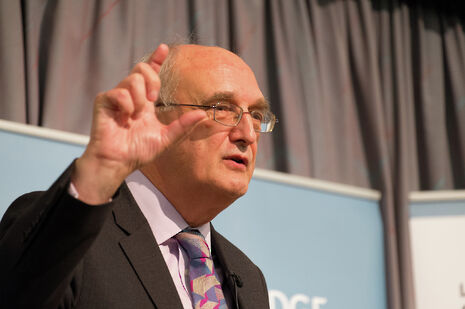Over 100 candidates in search for next Vice-Chancellor
University administrators will hold interviews for Prof. Sir Leszek Borysiewicz’s successor in late September

The University of Cambridge will select its next Vice-Chancellor from a pool of over 100 names.
Since the University began its search for Professor Sir Leszek Borysiewicz’s successor earlier this year, the Advisory Committee for the Nomination of the Vice-Chancellor has received ten applications and 95 nominations for the post.
In June, the head of the Advisory Committee and Master of Jesus College, Professor Ian White assured the University Council that “Care had been taken to consider gender balance and the background of candidates to ensure diversity, where possible.”
Whoever succeeds Borysiewicz as Vice-Chancellor will take over the reins of the University from October 2017, and will be handsomely rewarded, earning way above the average salary received by Russell Group university leaders.
Minutes acquired by Varsity in April revealed that the salary attached to Cambridge’s most senior executive office is due to rise to somewhere in the range of £400k-£450k, an increase of between 23 and 38 per cent.
However, that won’t be enough for them to out-earn their opposite number at the University of Oxford – the Other Place’s Vice-Chancellor netted £462,000 in 2014/15.
While there was no discussion of the names on the Advisory Committee’s “long shortlist” at the meeting in June, the minutes suggest that the Advisory Committee should now have conducted “a series of discussion meetings” over the summer, putting them in a position to recommend “two or three candidates”. Those candidates will be interviewed by the Council on 20th September.
The successful candidate will become Cambridge’s 346th Vice-Chancellor, though only the fifth person to hold the role full-time, the post having been a part-time for nearly 600 years prior to 1992.
Nowadays, the full-time nature of the job cannot be questioned. The current Vice-Chancellor has been kept busy by Brexit and the government's Higher Education Bill this summer, meeting with everyone from ministers and members of both Houses of Parliament, to university leaders from around Europe.
The challenges facing his successor are not to be scoffed at either. A presentation given by Professor White in February stressed the need for Cambridge to “modernise and reorganise”, having “underinvested in its estate for decades” in comparison to universities like Oxford, Yale, and Harvard.
 Interviews / ‘People just walk away’: the sense of exclusion felt by foundation year students19 April 2024
Interviews / ‘People just walk away’: the sense of exclusion felt by foundation year students19 April 2024 News / John’s spent over 17 times more on chapel choir than axed St John’s Voices22 April 2024
News / John’s spent over 17 times more on chapel choir than axed St John’s Voices22 April 2024 Theatre / The closest Cambridge comes to a Drama degree 19 April 2024
Theatre / The closest Cambridge comes to a Drama degree 19 April 2024 News / Copycat don caught again19 April 2024
News / Copycat don caught again19 April 2024 News / Corpus student left with dirty water for over six months21 April 2024
News / Corpus student left with dirty water for over six months21 April 2024





